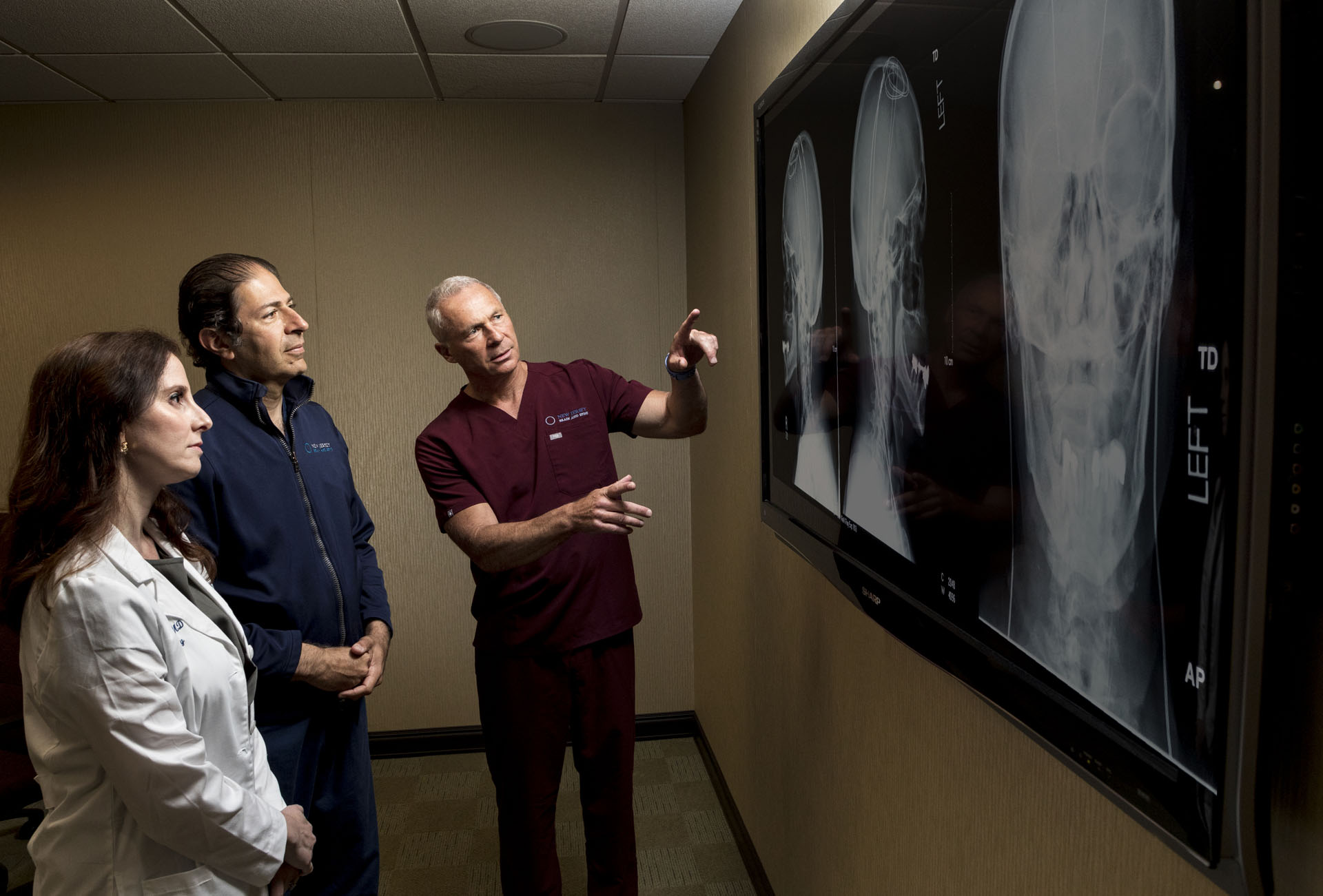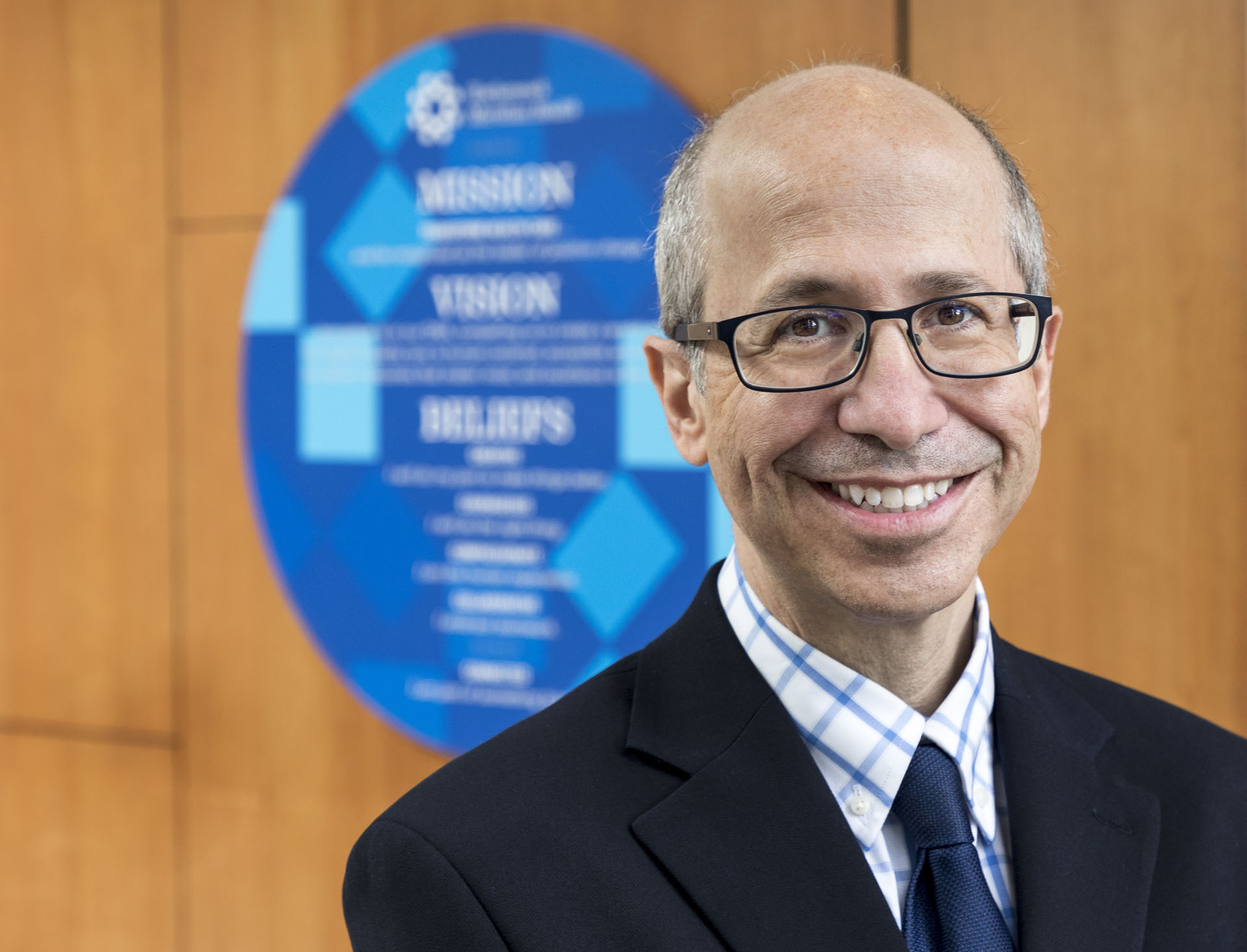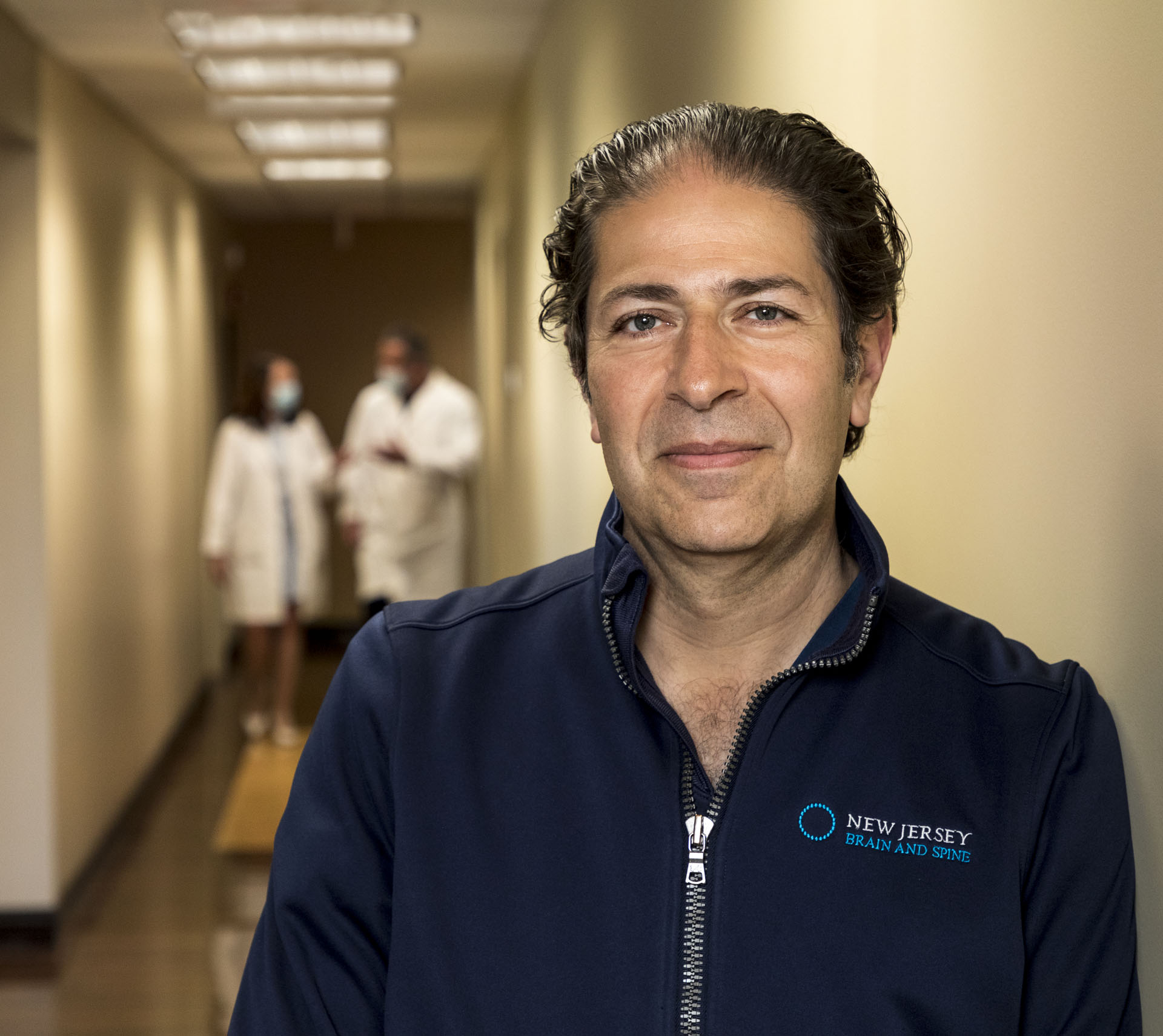NEUROLOGY SPECIALISTS AT HACKENSACK MERIDIAN HEALTH DISCUSS THE NETWORK’S COMPREHENSIVE APPROACH TO THE TREATMENT OF MOVEMENT DISORDERS, THROUGH REHABILITATION, EDUCATION, AND CLINICAL INNOVATION
BY AMANDA McCOY • PHOTOS BY AMESSE PHOTOGRAPHY
More than 40 million Americans are currently living with a movement disorder, according to the Parkinson’s and Movement Disorder Alliance. A movement disorder is characterized by an abnormal increase or decrease in the frequency and/or speed of movements. They can develop slowly or suddenly, and range in severity from mild to severely debilitating. Various conditions can affect voluntary movements (think holding a pen or raising a glass of water) or involuntary movements, such as breathing. While there are more than 30 neurological conditions that cause abnormal body movements, the most common disorders are essential tremor and Parkinson’s disease, which collectively affect 11 million Americans and that number is expected to rise over the next ten years.

The state’s largest healthcare network, Hackensack Meridian Health (HMH), is actively expanding its Parkinson’s Disease and Movement Disorders Program across all three hubs to offer advanced, individualized M care for New Jersey residents (and beyond) living with a movement disorder. The program is built on the tenet that state of the art care requires the seamless integration of diagnostics, treatment, rehabilitation, and education on how to navigate everyday life.
“Parkinson’s disease is the bulk of our practice, but as a movement disorders center and large healthcare network, we have the ability to treat all forms of movement disorders,” said Elana Clar, MD, a board certified neurologist specializing in movement disorders at Hackensack University Medical Center (HUMC). “We have the staff, equipment, and ancillary support that is required to take care of these individuals.”

Once a patient has been accurately diagnosed with Parkinson’s disease or another movement disorder, the neurology specialists at HMH have access to several treatment options, including medication management, physical, occupational, speech, and nutrition therapy, and deep brain stimulation a surgical procedure that, through a device implanted in the chest, delivers a gentle current to disrupt signals in the brain to try to reset the motor circuitry.
Hackensack Meridian Health invested in an MRIguided focused ultrasound at Hackensack University Medical Center, which became the first and only health system in New Jersey and only a handful in the country to use the FDA approved technology to treat essential tremor and tremor dominant Parkinson’s disease that has not responded to medications. MRI guided focused ultrasound is a noninvasive procedure that Dr. Clar described as game changing for these types of patients.

“MRI guided focused ultrasound is an amazing development because it has the potential to instantaneously decrease or eliminate tremors and improve quality of life for millions of patients who are living with essential tremor or tremor dominant Parkinson’s disease,” said Hooman Azmi, MD, director of the Division of Functional and Restorative Neurosurgery at the Neuroscience Institute at Hackensack University Medical Center.
According to Dr. Azmi, focused ultrasound works by using sound waves that travel through the skin and skull, which means the procedure can be performed without any incisions. Under MRI guidance, the sound waves are precisely focused on a targeted area deep in the brain. The sound waves create heat, which is used to disrupt the abnormal signals that cause tremor. The procedure is performed while the patient is awake, and because it’s noninvasive, the patient can go home the same day.
“Focused ultrasound is exciting because it doesn’t subject patients to the same rigors as surgery,” said Dr. Clar. “It has opened up our ability to treat a wider net of patients.”

This isn’t the first time HMH has made headlines for leading the charge in clinical innovation. Philip Hanna, MD, FAAN, who has been the director of the Parkinson’s disease and Movement Disorders Center at the Neuroscience Institute at JFK University Medical Center for 23 years, noted the hospital has been performing deep brain stimulation for more than 20 years and was one of the first in the country to introduce gamma knife capabilities. But Dr. Hanna pointed out that it’s not technology alone driving the network’s innovation.
“JFK University Medical Center, for example, has always been at the forefront of different therapies for Parkinson’s,” said Dr. Hanna. “We’ve always aligned with the idea that the Parkinson’s and Movement Disorders Program should be comprehensive. We work closely with the rehabilitation team to offer speech, occupational, and physical therapy to bring innovative and state of the art approaches to these conditions. We have several neurology subspecialists on site including a memory specialist, sleep specialists, and neuro ophthalmologists it really is one stop shopping.”

Dr. Hanna explained that advancements in diagnostic services have also played a key role in identifying Parkinson’s and other movement disorders early. “For quality of life, it’s important to catch Parkinson’s early, and we’ve seen a tremendous improvement in terms of diagnosis over the last few years,” said Dr. Hanna. “There is more awareness in the community, and more referrals from neurologists. JFKUMC has held comprehensive Parkinson’s disease seminars for patients, caregivers, and health professionals for many years. Our large residency program brings a strong educational and research aspect to the program, which has had many clinical trials over the years.”
Expanding access to care is also a hallmark of the program, particularly for New Jersey’s southern region.
“HMH is making the investment to bring high level neurologic care in movement disorders to the southern campus,” said Shabbar F. Danish, MD, FAANS, chair of neurosurgery at the Neuroscience Institute at Jersey Shore University Medical Center. “We now have a team of coordinated healthcare professionals all committed to the disease, including neurologists, psychologists, nurses, neuropsychologists, neurosurgeons, etc. The care of the disease requires a coordinated effort across many specialties, and the ability of HMH to recruit these specialists to this geography is significant.”

In order for the network to continue its efforts in expanding the program, the physicians noted it’s important for patients diagnosed with a movement disorder to see a specialist.
“I think one of the things that patients may not realize is that, for certain conditions, it’s helpful to have a specialist on board,” said Dr. Clar. “As their condition becomes more complicated, the patient will want to have a conversation with someone who can understand the challenges that are emerging. It can be complex; there are so many layers to how we manage an individual, whether that be through medication alone, consideration of surgery, or having tough conversations about hospice.”

“People should not hesitate to meet with a surgical team,” added Dr. Danish. “ at doesn’t mean we will whisk them off to surgery; it gives the patient the opportunity to become educated and make a connection with the people that may ultimately be a part of their care team.”
Hackensack Meridian Health
HackensackMeridianHealth.org/Neurosciences
